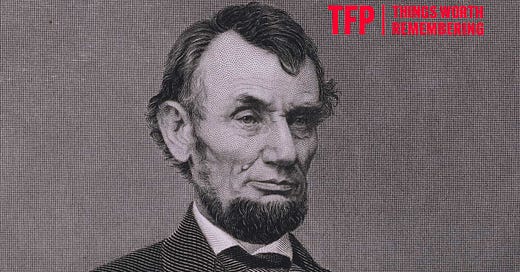
Welcome to Douglas Murray’s column, Things Worth Remembering, in which he presents great speeches from famous orators we should commit to heart. To listen to Douglas read and reflect on Abraham Lincoln’s closing words in his final debate with Stephen A. Douglas, scroll to the end of this piece.
Any survey of great oratory must include Abraham Lincoln. With his Gettysburg Address, the sixteenth president of the United States achieved a feat rarely heard since the days of ancient Athens.
The fact that Lincoln was the second speaker that day, November 19, 1863, makes his achievement more impressive. The man who went before him, former Harvard University president Edward Everett, spoke for two hours.
When Lincoln rose to make his remarks, anyone who wasn’t paying attention could have missed them. The address runs to just 272 words; Lincoln was on his feet for barely two minutes. But the president managed to communicate something other people would struggle to say in a whole lifetime. Distillation of thought was something Lincoln had mastered. The density of history, philosophy, and emotion that he packed into that short time span makes it a speech that nobody could forget.
Today, I want to concentrate on another of Lincoln’s achievements—specifically, the last of his contributions to the great 1858 debates he took part in with Stephen A. Douglas. As many readers will know, Douglas was a Democratic senator from Illinois, and Lincoln, a lawyer and former U.S. representative, his Republican challenger.



